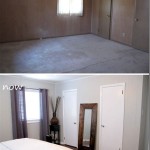Career Options for Interior Designers: A Comprehensive Guide
If you're passionate about creating beautiful and functional spaces, a career in interior design could be the perfect fit for you. This rewarding profession offers a wide range of career opportunities, each with unique responsibilities and requirements.
In this comprehensive guide, we'll delve into the essential aspects of career options for interior designers. From the different types of design roles to the educational and experience requirements, we'll provide you with all the information you need to make informed decisions about your future career path.
Types of Interior Design Roles
Interior design encompasses a diverse range of specialties, including:
- Residential Design: Creating and designing interiors for homes and apartments.
- Commercial Design: Designing interiors for offices, retail stores, restaurants, and other commercial spaces.
- Hospitality Design: Designing interiors for hotels, resorts, and other hospitality venues.
- Healthcare Design: Creating healing environments in hospitals, clinics, and healthcare facilities.
- Event Design: Planning and designing interiors for special events such as weddings, parties, and conferences.
Educational and Experience Requirements
To become a successful interior designer, you typically need a combination of education and experience:
- Education: Most interior designers have a bachelor's or master's degree in interior design from an accredited program.
- Experience: Entry-level interior designers often work as assistants or junior designers to gain practical experience before advancing to more senior roles.
Key Skills and Competencies
Interior designers require a diverse set of skills and competencies, including:
- Creativity: The ability to generate original and visually appealing designs.
- Technical Skills: Proficiency in computer-aided design (CAD) software and other design tools.
- Communication Skills: The ability to effectively communicate design concepts to clients, contractors, and other professionals.
- Business Acumen: An understanding of project management, budgeting, and marketing principles.
- Knowledge of Building Codes and Standards: A thorough understanding of building codes and safety regulations related to interior design.
Career Advancement Opportunities
As interior designers gain experience and establish a proven track record, they can advance to more senior roles, such as:
- Senior Interior Designer: Leading and managing design projects, supervising junior designers, and developing client relationships.
- Design Director: Directing the overall design vision for a company or organization, overseeing multiple projects, and managing a team of designers.
- Project Manager: Managing the day-to-day operations of design projects, coordinating with contractors, and ensuring project timelines and budgets are met.
Work Environment and Job Outlook
Interior designers typically work in an office setting, often collaborating with architects, engineers, and other professionals. The job outlook for interior designers is expected to grow in the coming years due to increasing demand for design services in both residential and commercial sectors.
Conclusion
A career in interior design offers a rewarding opportunity to combine creativity, technical proficiency, and business acumen. With a diverse range of career options, strong job prospects, and the potential for continuous professional growth, interior design can be a fulfilling and enriching career path for individuals with a passion for creating beautiful and functional spaces.

Career In Interior Designing After Graduation Edugorilla

Interior Design Institute And Course Inifd Ahmedabad Gujarat

What Are The Differences Between Interior Decorators And Designers

6 Career Options For Interior Design Graduates

Career Options After Becoming An Interior Designer

Pin Page

7 Career Options After Becoming An Interior Designer

Jobs For Interior Design Graduates Aceplp

Is Interior Designing A Good Career Choice Admission

Best Design Career To Choose Aspirants
Related Posts








